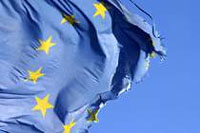Only new leaders can help make EU constitution a reality
A year ago the European Union plunged into what Prime Minister of Luxembourg Jean-Claude Juncker described as “not just a crisis, but a very deep crisis.” A year ago the French and the Dutch rejected the EU constitution. A community of experts and the EU bureaucrats got more than enough material to mull over and debate at length. However, the problems that virtually stalemated the building of the European Union a year ago remain unresolved today.

The results of the referendums on the EU constitution effectively shocked a part of the EU elite, which had believed that the will of the people would not set back the creation of a common European quasi-state equipped its own constitution. Yet the European leaders did not take long to recover from the state of shock. In keeping with a regular EU practice, they eventually arrived at the conclusion that the issue should be postponed until things look better. Sooner or later the EU citizens will go to the polls and say “yes” to the constitution.
However, it soon became evident that such a postponement would not change the situation. It is the most passionate advocates of the ideas of the people’s power who started raising the alarm. Then quite a few personalities of the European public also began to doubt the democratic nature of the politicians’ intended strategy to call on the people as many times as required to get them voting “in the right way.” Some full-fledged skeptics within the EU fueled the debate by saying that “there’s no guarantee whatsoever for such an approval to come into being one day.”
During a recent meeting in an old castle near Vienna, the foreign ministers of the EU member states finally agreed that pursuing such a strategy would contradict the democratic principles. At the moment it is rather difficult to speculate on any specific steps to be taken by the EU to supersede the strategy. The final decision is likely to be postponed until “better times” come around.
It is a shame that the rest of the world is opposed to the “wait-and-see” policy, especially when it comes to the economy. Back in 2004, Romano Prodi, head of the European commission at the time, made no fuss over his statement about the ambitious Lisbon program. He simply said that the program had fallen through. The program provided that the EU would develop a high-tech and efficient economic system, which should enable the Old World to compete successfully against the other parts of the world.
EU leaders in Brussels have more important things to do these days. For example, every time the date of a “final decision” on the issue of integration of Romania and Bulgaria into the EU draws near, they need to come up with a new and plausible excuse to keep those two countries waiting for a little bit longer.
On May 16th the EU put off the moment of decision yet another time. The EU promised to finalize the issue in October. In their turn, Sofia and Bucharest promised to conduct all the reforms in just four-month time, the very reforms they failed to complete for 15 years since the collapse of communism in Eastern Europe. EU bureaucrats will most likely to use the postponement period for drafting up yet another statement, which will convincingly explain to Bulgaria and Romania why they are still unwelcome to the European Union.
It is good news that EU politicians opted to take heed the will of the people and refrain from imposing the constitution on residents of Europe. Should they wish to go to great lengths in line with the democratic principles, they will have to painstakingly look into the reasons behind the outcome of last year’s referendums in France and the Netherlands.
Perhaps the inefficiency of the EU is one of the reasons. It is impossible to resolve the problem by shelving it. The policy of constant enlargement of the EU will not help find a solution either.
A conception in approaching the tackling of the problem will not be enough. Real leaders endowed with outstanding skills, those who have experience and charisma are required to fulfill the task. Europe needs new leaders who will be able to convince the Europeans one more time that integration will do them good. Such politicians are missing in Europe at the moment.
By all appearances, the concept of the EU constitution will have to wait until the new politicians climb the stage.
Politcom
Translated by Guerman Grachev
Pravda.Ru
Subscribe to Pravda.Ru Telegram channel, Facebook, RSS!





